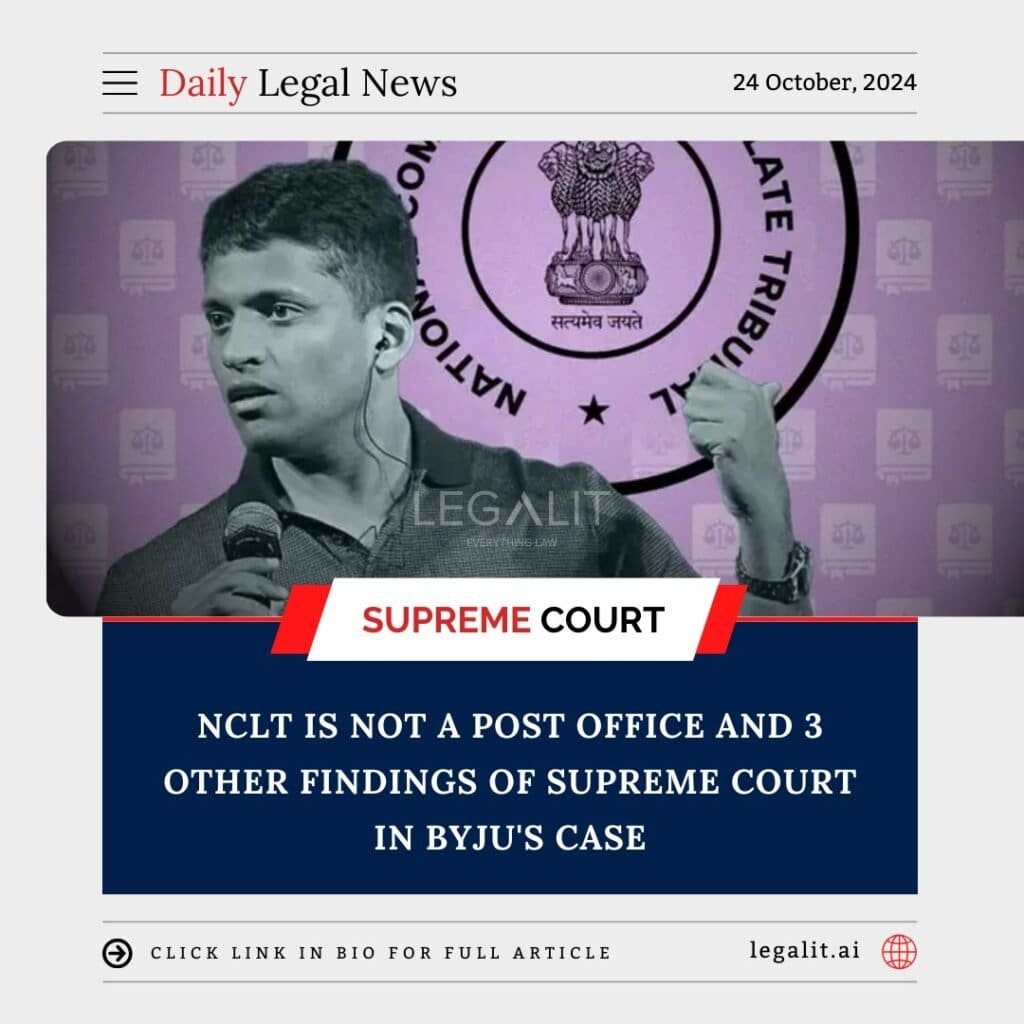
The Supreme Court of India, while deliberating on a case involving Byju’s, made significant observations regarding the functioning of the National Company Law Tribunal (NCLT). These remarks highlight the role of the NCLT in ensuring judicial oversight and protecting the interests of all stakeholders involved. Here are four key findings from the court’s decision:
1. NCLT is Not a Post Office
The Supreme Court strongly emphasized that the NCLT is not merely a post office for approving schemes or plans without conducting a thorough review. It is an adjudicatory body responsible for examining the details of any case brought before it and making informed decisions. This means that NCLT must go beyond just rubber-stamping resolutions and play an active role in scrutinizing the proposals and arguments presented.
2. Fairness and Transparency in Proceedings
The Court highlighted that proceedings before the NCLT must be conducted with the utmost fairness and transparency. This includes providing all parties involved, including creditors and stakeholders, an equal opportunity to present their case. The role of the NCLT is not just to process requests but to ensure that the outcomes are equitable and just for all parties involved.
3. Judicial Oversight in Corporate Resolutions
The Court stressed the need for judicial oversight in corporate resolutions, particularly in cases involving significant financial stakes or complex transactions. This is to ensure that the resolutions proposed are in the best interest of all parties and that there is no misuse of power or manipulation. The NCLT, as a specialized tribunal, has the responsibility to scrutinize every aspect of the case meticulously.
4. Protection of Stakeholder Interests
Another important finding was the Court’s emphasis on protecting the interests of all stakeholders, including employees, creditors, and shareholders. The Court underscored that the NCLT must balance corporate interests with the rights and concerns of these stakeholders when adjudicating cases.
Conclusion:
The Supreme Court’s observations in the Byju’s case reaffirm the critical role of the NCLT in the corporate legal framework. It underscores the need for the tribunal to exercise its powers judiciously and responsibly, ensuring fairness, transparency, and the protection of stakeholder interests in all matters brought before it.